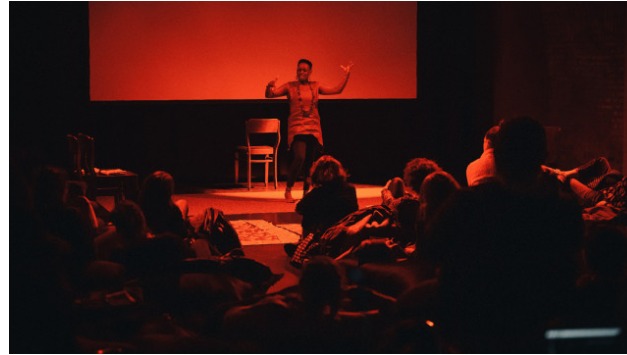By Keren Banza
ROOTS places a spotlight on intergenerational trauma while deconstructing the meaning of motherhood. Kenyan writer and performer, Wanjiku Mwawuganga, invites us into the complex relationships between mothers and daughters spanning five generations of her family.
Before walking into the theatre, a level of trust and intimacy is created between artist and audience member. We are each gifted with a photo. Every snapshot is a puzzle piece in Mwawuganga’s life, instantly making ROOTS an exchange between the performer and the audience. Using the photographs, Mwawuganga engages in conversations with the audiotorium. There is a lack of photographs of her great-grandmother, she explains, yet multiple snapshots of her mother. These will be passed onto her children along with stories of “before she became the giver, before she became unseen.”
The props are entangled in the storytelling. There is a chair to represent the generation of women of the Mwawuganga family; from the performer’s daughters to her great-grandmother. Kangas, light African fabrics often decorated with various colours and patterns, adorn each seat. As she dons a kanga, Mwawuganga embodies their stories of motherhood and trauma caused by the unrest in the country at the time.
The performance further explores the expectations placed on mothers. Mwawuganga shares how her mother gave up everything to raise her; how she lost her ambition and hopes. At the height of colonial oppression, her great-grandmother contemplated leaving the country without her children. When Mwawuganga became a mother, she explains, she went through postnatal depression and felt disconnected from her daughter. Mothers who don’t fit into society’s ideals of motherhood are left with the shame of what they perceive as failure.
ROOTS aims to reshape how we view and talk about motherhood. Despite maternal joys, it can come with a heavy sense of loss; the loss of self and who you might have become.


